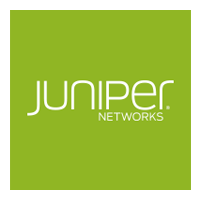Enterprise LAN is a local area network designed for use in a corporate setting. They are typically much larger and more complex than home or small office LANs, and they often feature a wide range of advanced features such as voice over IP (VoIP) and videoconferencing.
Enterprise LAN providers and solutions are a critical part of any business infrastructure. The best providers offer the reliability, security, and scalability businesses need to keep their operations running smoothly.
Enterprise LANs are also typically built using high-end networking equipment designed to provide reliability and performance. In many cases, enterprise LANs are also connected to wide area networks (WANs), allowing employees to access resources outside of the office. They usually come with redundant network infrastructure in place to ensure clients always have access to a reliable connection.
Here are our top ten enterprise LAN providers and solutions for 2023:
- Extreme Networks: Best for highly scalable infrastructure components and network applications. (Read more)
- Juniper Networks: Best for simplifying the full stack of IT networking requirements. (Read more)
- Cisco: Best for combining networking capabilities with unified communications. (Read more)
- HPE/Aruba: Best for a comprehensive portfolio of CX switches, Wi-Fi 6/6e access points, unified automation, and security platform. (Read more)
- Huawei: Best for a comprehensive wired and wireless product portfolio with competitive pricing, plus AI and ML enabled network management. (Read more)
- Arista Networks: Best for unified network operations tools with advanced AI and ML capabilities and integrated network management and security. (Read more)
- Fortinet: Best for tightly integrated LAN, WLAN, and security architecture with a unified operating system and cloud management platform. (Read more)
- TP-Link: Best for midsized enterprises looking for cost-effective solutions with basic network connectivity needs. (Read more)
- Alcatel-Lucent Enterprise (ALE): Best for midsized enterprises in healthcare, government, education, and transportation sectors looking for intelligent network deployment and pervasive management. (Read more)
Top enterprise LAN providers and solutions comparison
Below is a comparison table to help you quickly assess the top ten enterprise LAN providers and solutions based on various criteria.
| Proven scalability | AI/ML functionality | Customer and partner support | Comprehensive product portfolio | Global presence | |
|---|---|---|---|---|---|
| Extreme Networks | Yes | Yes | Yes | Yes | Yes |
| Juniper Networks | Yes | Yes | Yes | Yes | Yes |
| Cisco | Yes | Yes | Yes | Yes | Yes |
| HPE/Aruba | Yes | Yes | Yes | Yes | Yes |
| Huawei | Yes | Yes | Yes | Yes | Yes |
| Arista | Yes | Yes | Yes | Yes | No |
| Fortinet | Yes | Yes | Yes | Yes | Yes |
| TP-Link | No | No | Yes | Yes | Yes |
| Alcatel-Lucent Enterprise (ALE) | No | No | Yes | Yes | No |
Jump to:
- Key features of enterprise LAN providers
- How do I choose the best enterprise LAN provider for my business?
- Frequently Asked Questions (FAQ)
- Methodology

Extreme Networks
Best for highly scalable infrastructure components and network applications.
Extreme Networks is a renowned player in the enterprise LAN solutions market. With over 25 years of experience, the company offers a wide array of products, including switches, routers, wireless LAN, and security solutions.
Recognized by Gartner for 5 years in a row as a Magic Quadrant leader in Enterprise Wired and Wireless LAN Infrastructure Magic Quadrant, Extreme Networks stands out for its highly scalable solutions that can adapt to future growth needs without compromising security or performance. Extreme Networks has a global presence on five continents and over 20 countries.
Pricing
- The company does not publish pricing details on its website. Pricing is available by contacting Extreme Networks or through authorized distributors.
Features
- Comprehensive portfolio of switches, routers, and wireless LAN products.
- Bluetooth intrusion prevention and Wi-Fi security in a single system.
- Sophisticated cloud and analytics solutions for network optimization.
- Highly scalable enterprise LAN solutions for seamless expansion.
Pros
- Extensive global presence with operations on five continents and over 20 countries.
- Strong focus on security with innovative solutions like Bluetooth intrusion prevention.
- Robust support through the Extreme Academy, offering training and certification programs.
- Extensive partner network providing expertise in various domains.
Cons
- Specific product features may require additional licensing.

Juniper Networks
Best for simplifying the full stack of IT networking requirements.
Juniper Networks is a frontrunner in the enterprise LAN infrastructure landscape, offering a diverse range of products and services. These include cloud services, data center networking, switches, Junos network operating system, Paragon automation, routers, SDN, security, software, and wireless access points.
Recognized by Gartner for several years in a row as a Magic Quadrant leader in Enterprise Wired and Wireless LAN Infrastructure Magic Quadrant, Juniper Networks is known for its innovative and scalable solutions. The company has over 10,400 employees and operates in more than 50 countries.
Pricing
- Pricing varies based on the specific products and configurations chosen. Contact Juniper Networks or an authorized distributor for detailed pricing information.
Features
- Comprehensive suite of products including switches, routers, and wireless access points.
- Juniper Mist Cloud Architecture and Mist AI for real-time network activity analysis.
- Customizable and scalable LAN solutions to fit specific business needs.
- Extensive support for network as a service (NaaS), AIOps, automation, and security.
Pros
- Over 25 years of experience with a presence in more than 50 countries.
- Innovative solutions that leverage AI and real-time analytics.
- Wide range of customer support options, including online chat and a vibrant user community.
- Strong partner network providing expertise in various domains.
- Juniper offers a variety of customer support options, including online chat, phone support, knowledge base, tech library, and a vibrant user community.
Cons
- Some products may require a steep learning curve for new users.
- Pricing may be complex depending on the specific configurations and licensing requirements.

Cisco
Best for combining networking capabilities with unified communications.
Cisco, one of the largest networking companies globally, is renowned for its wide range of products and services, including the popular Cisco Meraki, a leader in Enterprise LAN.
Recognized by Gartner as one of the top supply chain companies for three consecutive years, Cisco’s robust features and commitment to customer satisfaction position it for continued growth in the enterprise market. The company has over 79,500 employees and more than 200 corporate offices in over 80 countries.
Pricing
- Pricing varies based on specific products and configurations. Contact Cisco or an authorized distributor for detailed pricing information.
Features
- Comprehensive Cisco Meraki cloud-based solution for managing enterprise WAPs.
- Cisco DNA Center for centralized network management and control.
- Customizable and scalable LAN solutions supporting various devices and protocols.
- Extensive partner network integrating, building, buying, and consulting on solutions.
Pros
- Over 37 years of experience with a presence in over 80 countries.
- Innovative solutions with centralized management through Cisco DNA Center.
- Wide range of customer support options, including online chat and a user community.
- Recognized as a Leader in the 2022 Gartner Magic Quadrant for Enterprise Wired and Wireless LAN Infrastructure.
Cons
- Mandatory DNA licensing for new purchases of Catalyst wired switching products.
- Overlapping product lines and tools may cause confusion.
- Limited interest and adoption in Cisco’s hardware “as a service” offering.

HPE/Aruba
Best for a comprehensive portfolio of CX switches, Wi-Fi 6/6e access points, unified automation and security platform.
HPE (Aruba), also Leader in the 2022 Gartner Magic Quadrant, offers a wide range of products managed through Aruba Central. With investments in AI and ML functionality, HPE (Aruba) focuses on feature parity between cloud and on-premises offerings and NaaS as a core aspect of its strategy.
HPE was spun off of HP in 2015 and is headquartered in San Jose, California. It acquired Aruba Networks in the same year in a $3 billion deal that boosted its share of the wireless networking business. The company has over 13,600 employees and operates in over 45 countries.
Pricing
The provider offers customized pricing based on specific product selection and deployment model.
Features
- Cloud-based campus management with Aruba ESP.
- Integrated leasing and managed network consumption model.
- Accurate Wi-Fi location technologies with GPS integration.
- Ezmeral Marketplace is a cloud-based central point to explore, learn, engage, and deploy with HPE technology partners and open-source projects.
Pros
- Unified automation and security platform.
- Large user base for managed network consumption model.
- Investments in hyperaccurate location services.
- HPE offers support to its customers through an online portal and training center.
Cons
- Lack of parity between cloud and on-premises offerings.
- Limited experience in large core switch deployments.

Huawei
Best for a comprehensive wired and wireless product portfolio with competitive pricing, AI and ML enabled network management.
Huawei, is also a Leader in the 2022 Gartner Magic Quadrant for Enterprise Wired and Wireless LAN Infrastructure. The company offers CloudEngine S series switches, AirEngine wireless APs, and iMaster NCE-Campus network management platform.
Despite geopolitical challenges, Huawei remains the third-largest provider in the market, focusing on AI and ML functionality and automation. The company’s products are used by over three billion people in 170 countries, and its LAN products are available in over 50 markets. Huawei has partnerships with over 500 carriers and 400,000 enterprises worldwide.
Pricing
- Huawei offers competitive pricing based on specific product selection and use cases.
Features
- Comprehensive product portfolio for all customer use cases.
- AI- and ML-enabled network management platform.
- Focus on supporting a “wireless-first” strategy.
Pros
- Wide range of products with competitive pricing.
- Strong growth in Wi-Fi revenue.
- Global diversity in operations.
- The company offers fairly good local support in all territories where it operates, directly or through partnerships. Huawei also has a vibrant online user community.
- Huawei has an extensive partner network, with thousands of technology partners all over the globe.
Cons
- Geopolitical challenges limiting exposure in some regions.
- Weak product branding recognition outside the Asia-Pacific (APAC) region.

Arista Networks
Best for unified network operations tools with advanced AI and ML capabilities and integrated network management and security.
Arista Networks was named a Visionary in the 2022 Gartner Magic Quadrant for Enterprise Wired and Wireless LAN Infrastructure. The company offers enterprise switching and Cognitive Wi-Fi products managed through CloudVision.
With a focus on North America and APAC, Arista emphasizes network automation, integrated security, and AI and ML capabilities. Arista was founded in 2004 and has over 2,900 employees. The company has an office presence in over seven countries.
Pricing
As with most Enterprise LAN providers and solutions, Arista’s pricing varies based on specific products and configurations.
Features
- Unified network operations tools with CloudVision.
- Advanced AI and ML capabilities with AVA platform.
- Integrated network management and security across WAN, LAN, and WLAN.
- Arista offers a number of LAN innovations, including one of the industry’s first 100GbE (gigabit Ethernet) switches.
Pros
- Minimal learning curve for existing Arista data center customers.
- Focus on natural language processing (NLP) and automated issue remediation.
- Unified management for data center and enterprise switching.
- The company provides customer support through an online knowledge base, a user community, and phone and chat support.
- Arista has teamed up with Microsoft, Splunk, and VMware to help deliver cutting-edge technology solutions.
Cons
- Leaf-spine topology-focused switching may be unnecessary for midsize enterprises.
- Limited wireless Wi-Fi 6 LAN portfolio.
- Limited exposure outside North America.

Fortinet
Best for tightly integrated LAN, WLAN, and security architecture with a unified operating system and cloud management platform.
Fortinet, recognized as a Visionary in the 2022 Gartner Magic Quadrant, offers FortiAP and FortiSwitch products that focus on tight integration with network security capabilities.
Leveraging FortiGate security appliances and FortiCloud, Fortinet provides a unified architecture across security, wired, and wireless networks. Founded in 2000, the company has over 11,500 employees, and operates in over 190 countries.
Through a series of strategic acquisitions, the company has established itself as a leader in the network threat management market. In addition, the company has over 1,279 issued patents with another 247 pending.
Pricing
Fortinet does not publish pricing information on its website. Contact Fortinet or an authorized distributor for detailed pricing information.
Features
- Tightly integrated portfolio with LAN, WLAN, and security under FortiOS.
- Dedicated AI operations module: FortiAIOps for network assurance.
- Security-focused networking with NAC functionality and advanced threat security.
Pros
- Fortinet is a world leader in innovative enterprise LAN security solutions. Its patent portfolio is a testament to the company’s commitment to research and development.
- Unified operating system and cloud management platform.
- Investment in native AI and ML functionality.
- Strong focus on security integration.
- The company offers customer support through an online breach reporting portal, a Product Demo Center, a Documents Library, a user community, an Answers portal, and chat and phone support.
- A large network of technology partners spread out globally that it works with to provide enterprise LAN solutions.
Cons
- Lack of large-enterprise experience in high-density network support.
- Insufficient inventory for certain product replacements.
- Confusing mix of overlapping products, tools, and licenses.

TP-Link
Best for midsized enterprises looking for cost-effective solutions with basic network connectivity needs.
TP-Link, a Niche Player in the Gartner Magic Quadrant, focuses on the needs of midsized enterprises with products like Omada WLAN, T series wired switches, and associated network software products. The company was founded in 1996.
Pricing
TP-Link does not provide specific pricing information for most of its producst on the official website, and it may vary depending on the region and retailer. However, the Gartner 2022 Magic Quadrant for Enterprise Wired and Wireless LAN Infrastructure suggests that TP-Link’s pricing is among the lowest of its competitors, aligning with the needs of most midsized enterprises.
Features
- Scalable network management offering with Omada.
- Comprehensive Wi-Fi 6 portfolio with RF optimization features.
- Highly competitive pricing.
Pros
- Unified monitoring for various TP-Link products.
- Comprehensive Wi-Fi 6 access points.
- Attractive pricing strategy.
Cons
- Lack of focus on innovation for enterprise needs.
- Basic network security and location features.
- Limited product capabilities, including lack of high-density access layer switches.

Alcatel-Lucent Enterprise (ALE)
Best for midsize enterprises in healthcare, government, education, and transportation sectors looking for intelligent network deployment and pervasive management.
ALE, a Niche Player in the 2022 Gartner Magic Quadrant for this technology category, offers OmniSwitch switches, OmniAccess Stellar wireless access points, and associated network software products, focusing on midsize enterprises.
Pricing
- Contact ALE or an authorized distributor for detailed pricing information.
Features
- Intelligent Fabric technology for large network installations.
- Pervasive network management with OmniVista.
- Specific vertical expertise in key target industries.
Pros
- Automation and IoT onboarding with Intelligent Fabric.
- Wide range of network management options.
- Industry-specific expertise in healthcare, government, education, and transportation.
Cons
- Lags in advanced network security capabilities.
- Stagnant market execution and small market footprint.
- Limited global enterprise network market penetration outside EMEA and APAC.
Key features of enterprise LAN providers and solutions
When it comes to top enterprise LAN providers, there are a few key criteria to consider: market entrenchment, scalability, innovation, support, product portfolio, and global presence.
Market entrenchment
Look for providers with a strong presence and reputation in the market. This ensures stability and reliability in their offerings.
Proven ability to scale
Choose providers that offer scalable solutions to accommodate future growth without compromising performance.
Innovations
Consider providers that invest in cutting-edge technologies like AI and ML to enhance network efficiency and security.
Customer and partner support
Opt for providers with robust customer support and a wide partner network to ensure seamless implementation and ongoing support.
Comprehensive product portfolio
A wide range of products ensures that you can find solutions tailored to your specific needs.
Global presence
Providers with operations in multiple countries can offer better support and have a broader understanding of market dynamics.
How to choose the best enterprise LAN provider or solution for your business
Choosing the right enterprise LAN provider or solution is a vital decision for enterprises of all sizes, as it can significantly impact the organization’s efficiency, scalability, security, and global reach. Here’s a summary of key considerations, along with examples of how specific providers on our list might align with the needs of your company:
- Comprehensive product portfolio: Large enterprises often require a wide array of products, including advanced switches, routers, and wireless LAN products. Cisco, with its extensive product range, including Cisco Meraki, can be an ideal choice for such comprehensive needs.
- Global presence: For multinational corporations, providers with a strong global presence are essential. Huawei, with its operations in over 170 countries, can offer consistent support and service across different regions.
- Innovations: Investing in providers that focus on innovations like AI, ML, and automation can offer cutting-edge solutions. Arista Networks, with its unified network operations tools and advanced AI and ML capabilities, stands out in this regard.
- Customer and partner support: Robust customer and partner support is vital for smooth implementation and ongoing maintenance. Juniper Networks, with its wide range of customer support options and strong partner network, can be a strong contender for large enterprises.
- Proven ability to scale: Large enterprises need solutions that can scale with their growth. Extreme Networks, recognized by Gartner for its highly scalable infrastructure components, can be a suitable choice for organizations looking to adapt to future growth needs.
- Industry-specific solutions: If your organization operates in specific industries such as healthcare or government, providers like Alcatel-Lucent Enterprise (ALE) that offer industry-specific expertise might be the right fit.
- Security considerations: Fortinet, with its focus on tightly integrated LAN, WLAN, and security architecture, can be an attractive option for large enterprises prioritizing security.
By considering these factors and aligning them with the unique needs and goals of your enterprise, you can make an informed decision. Consulting with network experts or authorized distributors and evaluating the specific offerings of providers on our list can further ensure that you choose the solution that best fits your requirements.
Frequently Asked Questions (FAQs)
What is an enterprise LAN?
Enterprise LAN is a network that connects computers and devices within a specific geographic area such as an office building or campus. It enables efficient communication and resource sharing within an organization.
What are the use cases of LAN?
LAN is used for various purposes, including file sharing, collaboration, internet access, and connecting to peripheral devices like printers. It’s essential for seamless communication within an organization.
Do companies use LAN or WAN more often?
Companies typically use both LAN and WAN. LAN is used for internal networking within a specific location, while WAN connects different locations or branches of a company. LAN provides high-speed connectivity within a confined area, while WAN enables broader connectivity across regions.
Methodology
In compiling this review of the top enterprise LAN providers, we employed a rigorous and multifaceted approach to ensure accuracy and relevance. Our analysis was deeply rooted in several industry reports, most notably Gartner’s 2022 Magic Quadrant for Enterprise Wired and Wireless LAN Infrastructure.
We evaluated each provider based on several key aspects, including product portfolio, scalability, innovation, global presence, and customer support.
Primary data about each provider was gathered directly from the vendor’s website, ensuring firsthand information. Further, we considered the provider’s reputation in the industry and analyzed user feedback on various review websites to gain a holistic view of customer satisfaction and real-world performance.
Bottom line: Selecting the right enterprise LAN provider
Selecting the right enterprise LAN provider is a critical decision that can shape the efficiency and growth trajectory of enterprises of all sizes. This review, grounded in extensive research and analysis, serves as a valuable guide for enterprises seeking to invest in robust and future-ready LAN solutions.
Looking to expand past LAN? Here are the best 5G business network providers for reliable, lightning-fast connectivity.


